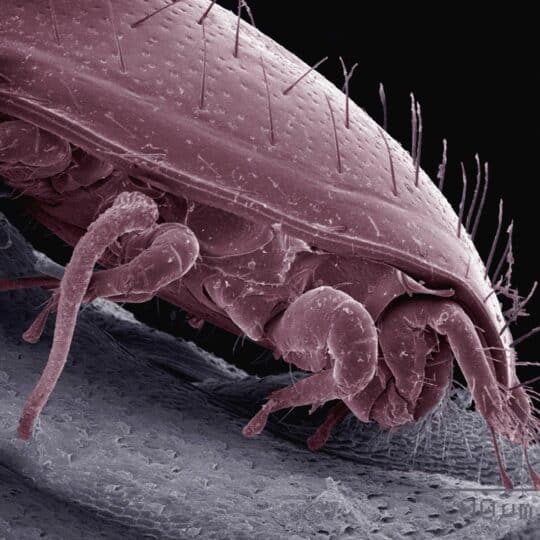How Can Pests Cause Seasonal Allergies?

We’re sneezing a lot right now. So many of us are dealing with some pretty severe allergies, made worse by the especially rainy winter.
Seasonal allergies are, rightfully, often associated with pollen, mold, and other environmental allergens. These are going to be the cause of most of your allergies, especially *outdoors*. But many people do not realize that common household pests can also contribute to these symptoms. Some pests can cause and contribute to allergies, and some of them – although not all of them – may also be “in season” right now.
Common Pests Linked to Allergies
Several pests are known to exacerbate or trigger allergic reactions. The ones that are most frequently to blame include:
- Cockroaches – Cockroach droppings, saliva, and shed skin contain allergenic proteins that can trigger allergies and even asthma. They are the most common allergy causing pest that can be addressed and prevented with pest control.
- Rodents – Mice and rats can also be sources of allergens. Their droppings, urine, and dander can mix with dust and become airborne, potentially causing respiratory allergies.
- Stink Bugs – Stink bug allergies are less common, but do occur. Some people are allergic to the same chemicals that cause the odor, which leads to allergic symptoms.
Another common household pest that causes allergies is the dust mite. These tiny creatures thrive in warm, humid environments and are commonly found in bedding, carpets, and upholstered furniture. Dust mite waste products are a major allergen and can cause symptoms similar to pollen allergies, such as sneezing, runny nose, and itchy eyes.
In fact, if you are “allergic to dust,” you are actually allergic to dust mite feces. Dust mites, unfortunately, cannot be prevented through pest control, but you can try to reduce the presence of dust mites by washing your sheets and cleaning dust from your home often.
How Do I Know if My Allergies Are Pest Related?
It can be a bit of a challenge determining if you have a pest related allergy or a seasonal one, other than professional medical tests. But one sign might be if you seem to experience more allergies indoors than outdoors, or you experience them in places these pests have been. Since pest control is useful anyway, it is often a good idea to treat your home as though you’re allergic.
What Can Be Done About Pest Related Allergies?
To effectively manage and reduce allergy symptoms related to pests, consider the following steps:
- Maintain Cleanliness – Regular cleaning can reduce the presence of dust mites and limit the accumulation of pest-related allergens in the home. Focus on vacuuming carpets, washing bedding in hot water, and decluttering spaces to minimize dust and allergen accumulation.
- Control Humidity – Keeping indoor humidity below 50% can help inhibit the growth of dust mites and mold, both of which are linked to allergies.
- Seal Entry Points – To prevent pests like rodents and cockroaches from entering the home, seal cracks and openings around doors, windows, and foundations. Store food in sealed containers and dispose of garbage regularly.
- Professional Pest Control – If pest infestations are severe, professional pest control services may be necessary to effectively eliminate the source of allergens.
Pests can play a significant role in seasonal allergies by introducing and spreading allergens within the home environment. If you suspect your home has a pest problem, or you’re wanting to see if pest control can reduce some of your allergies, contact ExtermPRO today.
Special Offer for New Customers
$50 Off Complete Pest Control Services
Hurry! Offer Expires July 15, 2025